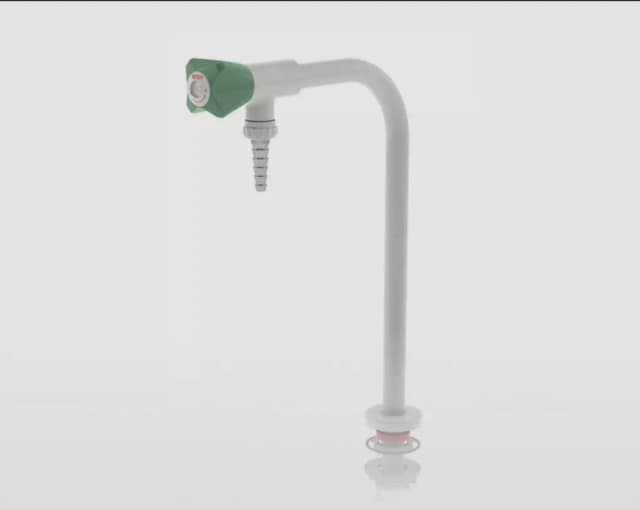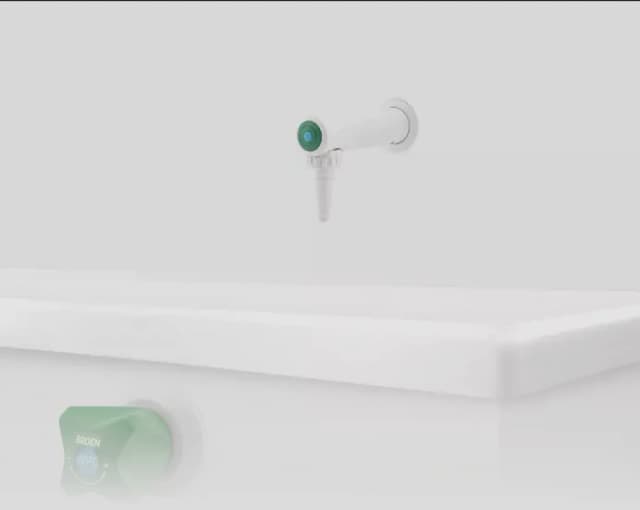- Laboratory Valves Valves are an essential part of the equipment, controlling the flow of liquids, gases, and other substances. They are available in various types, including:
- Ball Valves – for precise flow regulation of liquids and gases.
- Electromagnetic Valves – for automatic flow control in systems that require high accuracy.
- Needle Valves – for minimal, precise flows.
- Laboratory Faucets Faucets are plumbing installations tailored to the specific needs of laboratories. They are resistant to aggressive chemicals, allowing for safe conduct of experiments. They include:
- Wall-Mounted Faucets – installed on the wall, often with flexible hoses.
- Deck-Mounted Faucets – mounted directly on laboratory benches.
- Safety Showers These showers are essential in chemical and industrial laboratories where there is a risk of contact with hazardous substances. They allow for quick rinsing of chemicals in case of an accident, protecting the health and life of workers.
- Eye Wash Stations Eye wash stations are a safety feature used in cases where irritating substances or chemicals come into contact with the eyes. They require regular maintenance to always be ready for use.
Characteristics of Laboratory Equipment
- Chemical Resistance Laboratory equipment is made from materials resistant to aggressive chemicals such as acids, bases, or organic solvents. Commonly used materials include stainless steel, brass, and various plastics with high chemical resistance.
- Precise Flow Control Laboratory valves and faucets enable precise control of the flow of liquids and gases, which is crucial in research processes that require accurate measurements.
- Resistance to Extreme Temperatures Research in laboratories is often conducted at extreme temperatures, so the equipment must withstand harsh thermal conditions. Valves and faucets must endure both cryogenic low temperatures and very high temperatures characteristic of chemical experiments.
- Ease of Maintenance and Cleaning High hygiene and cleanliness are fundamental requirements in laboratories. Therefore, laboratory equipment must be easy to clean and maintain, ensuring uninterrupted operation and minimizing the risk of contamination.
Applications of Laboratory Equipment
Laboratory equipment has wide-ranging applications in various research, industrial, and educational institutions. It is used in:
- Chemical Laboratories – for precise dosing of chemicals and controlling the flow of substances.
- Medical Laboratories – in water, ventilation, and gas systems.
- Pharmaceutical Laboratories – for the production and research of new drugs.
- Research Institutes and Universities – as an essential element in the equipment of research setups.
Summary
Laboratory equipment plays a critical role in the proper functioning of laboratories. Its properties, such as chemical resistance, operational precision, and durability, make it an indispensable element in any research environment. When choosing laboratory equipment, attention should be paid to its quality, material, and functionality to ensure optimal working conditions and safety for personnel.


